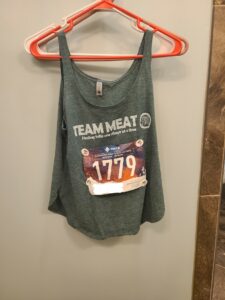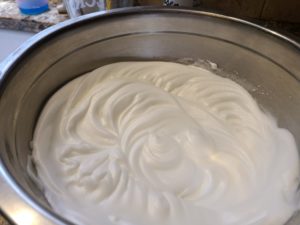That I have never experienced.
Carnivores are always making fantastic claims about what the diet has done for them. And you know what? I believe every single one of them! How could I not? I make some fantastic claims for myself! I’ve healed my allergies (except to ragweed, which reigns champion every fall), asthma (even ragweed doesn’t bring that back), and eczema, lost 60 pounds, cured anxiety, depression, OCD, and a host of other problems! You can read the rest of the blog to hear about all of it. But there are some marvelous benefits that almost all carnivores say they have experienced that I, to date, have not.
I’ve been carnivore for seven years come November, so I’ve been eating this way plenty long enough to say for sure whether these effects are something everybody should expect. I say no. Some of this Meat Magic may pass you by, no matter what other benefits you receive. You may experience the following effects, and I hope you do. Practically everybody else seems to, but I have not.
Thing #1: Carnivores don’t fart anymore.
I hate to lead off with potentially embarrassing information about myself. I know it’s not ladylike, but I still toot. It does not smell bad at all. I never have gas, bloating, tummy pain, or anything like that. But air still puffs out from time to time, especially when I eat butter. In fact, it smells faintly of butter. Sorry if that’s tmi, but it’s true. Butter makes me fart.

Thing #2: Carnivores don’t get sore after a hard workout anymore.
While I am very glad for anybody who is able to say this, delayed onset muscle soreness (DOMS), is not something I’ve left behind. I don’t know what this means for my health. Maybe I’m doing something wrong. But when I lift super-heavy, I still feel it the next day! I actually like that feeling, because it means I broke past my comfort barrier and really did something. Most people don’t like to be in pain, so I’m happy for those who can still walk upstairs and sit down without groaning the day after leg day.
But I just haven’t seen this for some reason. Still sore, and still happy to be that way!
Thing #3: Carnivores never miss certain foods.
You’d think desserts would be the hardest thing to pass up, having gone off the sugar, but the biggest struggle for me is to not put collard greens in my face. “Well, why not just have some delicious, good-for-you leafy greens then, you freak? You even cook it with bacon!” Because, my friend, something about fiber-rich foods makes my OCD come back with a vengeance! I like having eyebrows, and collard greens make me pull my hair. I know that sounds nuts, but it’s true, and I’ve cheated with leafy greens enough to know for sure that I can’t have that stuff. I do pick out the greens-flavored bacon and enjoy that, though. I can get away with that.
I’m sure other people struggle with certain foods, as well. I’m not above lingering over the dessert table to smell the delicious food, myself. I’ve just gotten used to the idea that these foods are a pleasant memory. I can miss them, but they are dead to me.
Thing #4: Carnivores don’t get sunburn any more.
This, sadly, is another myth for me. I kept waiting for the day that I would be able to spend unlimited amounts of time in the sun without getting a burn, and it never came. Now, I always just burnt a little in the early summer, peeled, and then had a nice tan the rest of the summer. I never had a big problem with burning anyway. But I do still get a painful glow if I don’t remember to get out of the sun during the most intense hours of the day.
One thing I have noticed is that I don’t burn as much if I don’t sit still. Running at noon in direct summer sun? No problem. Sitting for the same length of time? Burn, baby, burn! So maybe the rest of those carnivores who are not burning anymore are just suddenly moving a lot more than they used to, dodging those slowpoke sun-rays!
Thing #5: The bugs don’t bite me any more.
I’ve heard so many people say the bugs don’t bite them anymore. As with all of these things, I believe them! They’re mosquito-repellent all of a sudden. What a blessing! Amazing things happen when you change your body chemistry so completely. But I’m sitting here scratching this very minute, and so are my meat-heavy children. I dunno. You can form your own theories about why that might be.
How about you, carnivores, and non-carnivores alike? Do you have any dietary expectations that haven’t quite been fulfilled by the way you’re eating right now? Comments are open, and I’d sure love to get something besides spam in here! Let me know!
Also, while I’ve got you here, I’m asking for donations to fund my next run. Help me get to the Black Bear Half Marathon:










